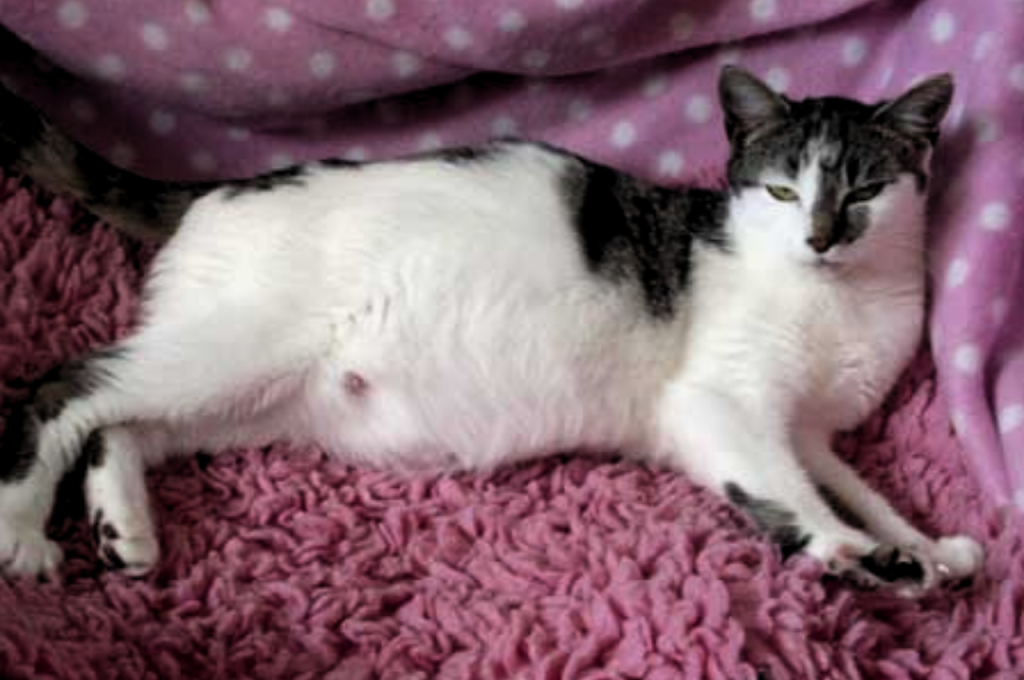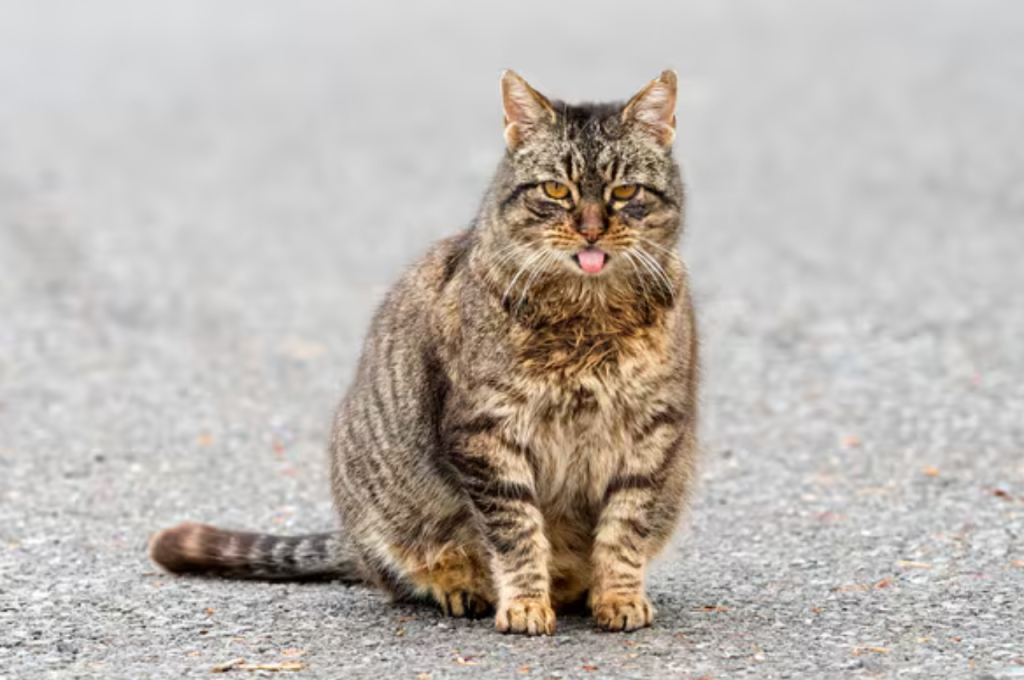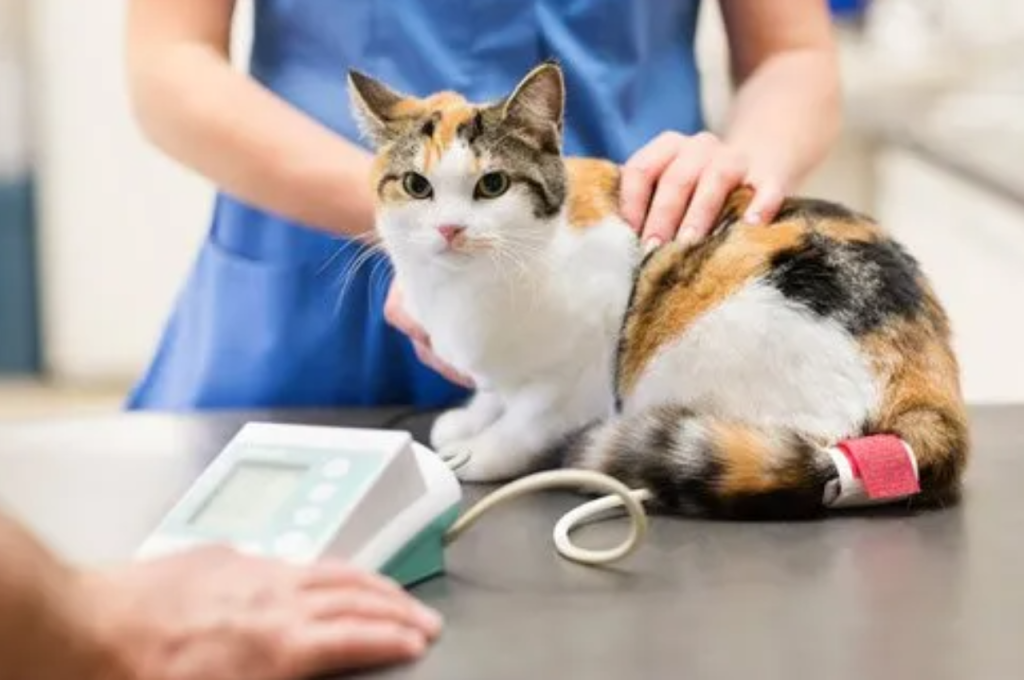During pregnancy, a female cat needs proper nutrition, regular vet check-ups, and a comfortable nesting area. Taking care of a pregnant cat is crucial for her health and the health of her kittens.
Providing a balanced diet that meets her increased nutritional needs is essential. Regular veterinary check-ups ensure the pregnancy is progressing well and address any potential issues. Creating a quiet, warm, and safe nesting area for the cat to give birth and care for her kittens is also important. These steps will help ensure a healthy and successful pregnancy for the cat and her offspring.
The Joy of Expecting Kittens: Preparing for Your Cat’s Pregnancy
Preparing for your cat’s pregnancy can be an exciting and joyful experience. Create a comfortable, quiet space for her to nest, away from the hustle and bustle of your home. Ensure she has access to high-quality, nutritious food and plenty of fresh water. Regular vet visits are essential to monitor her health and the development of the kittens. Educate yourself about the signs of labor and gather necessary supplies like clean towels, a heat source, and a birthing box. Being well-prepared helps ensure a smooth pregnancy and delivery, allowing you to focus on the joy of welcoming new kittens into your home.

Recognizing The Signs of Pregnancy
Pregnancy in cats can be a wonderful experience. Observing your cat closely can help identify signs of pregnancy. Look for physical changes and behaviors such as increased appetite and nesting behavior.
Creating a Safe and Comfortable Environment
Ensuring a safe and comfortable environment for your pregnant cat is crucial. Provide a quiet and secluded area for nesting. Ensure she has access to fresh water and a balanced diet.
Nutritional Needs: Feeding Your Pregnant Cat Right
Proper nutrition is essential for a pregnant cat’s health and her kittens’ development. Firstly, feed her a high-quality, balanced diet with sufficient protein and calories. Secondly, provide her with plenty of fresh, clean water. Lastly, consult with your veterinarian about any necessary supplements or dietary adjustments.
Choosing The Right Diet
When it comes to the nutritional needs of a pregnant cat, choosing the right diet is of utmost importance. During pregnancy, a cat’s nutritional requirements change significantly to support the growth and development of her kittens. Providing her with a balanced and nutritious diet will help ensure the health and well-being of both the mother and her offspring.
It is advisable to switch your cat to a high-quality, commercially available cat food specifically formulated for pregnant and nursing cats. These diets are designed to provide the necessary nutrients, such as protein, fat, vitamins, and minerals, in the correct proportions to support a healthy pregnancy.
When selecting a cat food, look for one that is labeled as “complete and balanced” to ensure that it meets all of your cat’s nutritional needs. It is also important to choose a food that is appropriate for your cat’s age and life stage, as her requirements may vary depending on whether she is in the early or late stages of pregnancy.
Supplements and Vitamins: Are They Necessary
While a high-quality diet should provide most of the essential nutrients, some pregnant cats may benefit from additional supplements or vitamins. Before adding any supplements to your cat’s diet, it is crucial to consult with your veterinarian to ensure they are safe and appropriate for your cat’s specific needs.
In some cases, your veterinarian may recommend supplements such as omega-3 fatty acids, which can support brain development in the kittens. Additionally, certain vitamins like folic acid and calcium may be necessary to prevent deficiencies and promote healthy bone growth.
However, it is essential to remember that supplements should never replace a balanced diet and should only be used under the guidance of a veterinarian. Excessive amounts of certain nutrients can be harmful to your cat and her kittens, so it is crucial to follow your vet’s recommendations carefully.
Veterinary Care for a Healthy Pregnancy
Veterinary care is essential for ensuring a healthy pregnancy for your cat. Scheduling regular check-ups, vaccinations, and parasite control are crucial aspects of maintaining the well-being of a pregnant female cat. By prioritizing these measures, you can help your cat have a smooth and healthy pregnancy.
Scheduling Regular Check-ups
Regular check-ups with a veterinarian are vital during a cat’s pregnancy. Schedule these appointments to monitor the cat’s overall health and the progress of the pregnancy. The veterinarian will conduct physical examinations and may recommend additional tests to ensure the well-being of the mother cat and her unborn kittens.
Vaccinations and Parasite Control
During pregnancy, maintaining up-to-date vaccinations for the cat is crucial to protect her health and that of her offspring. Ensuring that the cat is vaccinated against common feline diseases can help prevent potential complications. Additionally, the veterinarian may recommend parasite control measures to safeguard the cat and her kittens from parasites that could pose a threat during pregnancy and after birth.
Exercise and Activity: Keeping Your Pregnant Cat Active
Ensure your pregnant cat stays active by providing gentle play sessions, a balanced diet for proper nutrition, and regular vet check-ups to monitor her health throughout pregnancy. These three steps will help keep your furry friend happy and healthy during this special time.

Safe Exercises for Pregnant Cats
During pregnancy, it’s important to keep your cat active and engaged in safe exercises. Regular physical activity can help maintain muscle tone, prevent excessive weight gain, and ensure a healthy pregnancy. Here are some safe exercises for your pregnant cat:
- Walking: Take your cat for short walks indoors or in a secure outdoor area. Use a harness and leash to ensure her safety and prevent her from wandering too far.
- Interactive Play: Engage your cat in gentle interactive play sessions using toys that encourage movement. This can include chasing a feather wand or batting at a toy mouse.
- Obstacle Courses: Set up a simple obstacle course using cushions, tunnels, or low hurdles. This can encourage your cat to jump, crawl, and navigate through the course, providing mental and physical stimulation.
Remember to monitor your cat’s energy levels and adjust the intensity and duration of exercise accordingly.
Understanding Your Cat’s Changing Energy Levels
Throughout pregnancy, a cat’s energy levels may fluctuate. It’s important to understand these changes and adapt their exercise routine accordingly. Here are some key points to consider:
- Early Pregnancy: During the first few weeks of pregnancy, your cat may experience fatigue and decreased energy levels. Keep exercise sessions short and low-intensity, focusing on gentle play and walks.
- Mid-Pregnancy: As your cat progresses in her pregnancy, she may regain some energy. Increase the duration and intensity of exercise gradually, ensuring she is comfortable and not exerting herself excessively.
- Late Pregnancy: In the final weeks of pregnancy, your cat’s energy levels may decrease again. Reduce exercise sessions to short and gentle activities to avoid overexertion. By understanding and adapting to your pregnant cat’s changing energy levels, you can ensure she remains active and healthy throughout her pregnancy. Remember to consult with your veterinarian to determine the best exercise routine for your pregnant cat. They can provide personalized advice based on your cat’s specific needs and health conditions.
In conclusion, exercise and activity are essential for a pregnant cat’s well-being. By incorporating safe exercises and being mindful of your cat’s changing energy levels, you can help promote a healthy and comfortable pregnancy for your furry friend.
Preparing for The Big Day: The Birth of Kittens
When preparing for the birth of kittens, there are three important things to do for a pregnant female cat. Provide a comfortable nesting area, ensure a balanced diet with extra nutrients, and schedule regular veterinary check-ups to monitor her health. By following these steps, you can help ensure a smooth and healthy delivery for your feline friend.
Setting up a Birthing Area
Choose a quiet, warm, and secluded spot for the pregnant cat to give birth.
- Provide a nesting box lined with soft blankets or towels for comfort.
- Ensure the area is easily accessible but away from household traffic.
- Keep it clean and free of any potential hazards.
What to Expect During Labor
Closely monitor the pregnant cat for signs of impending labor like restlessness or nesting behavior.
- Labor may last up to 24 hours but contact a vet if it exceeds this time.
- Expect the cat to deliver a kitten every 30-60 minutes.
- Ensure the mother removes the birth sac and cleans the kittens.
Postpartum Care: After The Kittens Arrive
Ensure the pregnant female cat has a comfortable and quiet space for birthing. Provide nutritious food and clean water, and monitor her closely for any signs of distress. Prepare a cozy nesting area with blankets or towels for the mother and kittens.
Caring for The New Mother
After giving birth, the mother cat will need extra care and attention to ensure that she is healthy and able to care for her kittens. Provide her with a warm, comfortable, and quiet place to rest where she can feel safe. Make sure she has access to plenty of fresh water and high-quality food that is specifically formulated for nursing cats. It’s also important to clean her litter box frequently to prevent any infections. You should monitor the mother cat’s behavior closely. Look for any signs of pain or discomfort, such as crying or excessive grooming of the genital area. If you notice anything unusual, contact your veterinarian immediately.
Monitoring The Health of The Kittens
Once the kittens arrive, you need to monitor their health closely. Check their weight regularly to ensure they are gaining weight, and look for any signs of illness, such as diarrhea or vomiting. If you notice any of these symptoms, contact your veterinarian right away. Make sure the kittens are nursing properly and getting enough milk. If you notice that a kitten is not nursing or is being pushed away by the mother, you may need to intervene. You can try feeding the kitten with a bottle or syringe, but it’s important to consult with your veterinarian to ensure you’re doing it correctly.
Caring for a pregnant cat can be challenging, but with proper care and attention, you can help ensure the health of both the mother and her kittens. By following these tips, you can help ensure that your cat has a safe and healthy pregnancy and that her kittens are strong and healthy.
Common Health Issues in Pregnant Cats and How to Address Them
Pregnancy can be a challenging time for cats, and it’s essential for pet owners to be aware of common health issues that may arise during this period. Identifying signs of distress and knowing when to seek veterinary care are crucial aspects of ensuring the well-being of a pregnant cat. By understanding these issues and taking proactive measures, you can help your feline companion have a safe and comfortable pregnancy.
Identifying Signs of Distress
Pregnant cats may exhibit signs of distress that require immediate attention. It’s important to be vigilant and watch for any unusual behavior or symptoms. Some common signs of distress in pregnant cats include:
- Excessive vocalization or agitation
- Refusal to eat or drink
- Labored breathing or panting
- Abnormal discharge from the vulva
When to Contact Your Vet
Knowing when to contact your veterinarian is crucial for addressing any potential health issues during your cat’s pregnancy. If you observe any of the aforementioned signs of distress or have concerns about your cat’s well-being, it’s important to seek professional guidance promptly. Additionally, regular check-ups with your vet can help monitor the progress of the pregnancy and address any emerging health concerns.
The Role of The Cat Owner in Pregnancy and Birth
The role of the cat owner during pregnancy and birth is crucial for ensuring the health and well-being of both the mother cat and her kittens. Owners should provide a nutritious diet, regular veterinary care, and a stress-free environment. Creating a cozy, quiet nesting area is essential for the cat’s comfort. Monitoring the cat for signs of labor and being prepared with necessary supplies can facilitate a smooth birthing process. Additionally, offering gentle support and ensuring the mother cat feels safe can help alleviate stress. Post-birth, the owner’s role extends to assisting with kitten care and continuing to provide a nurturing environment.

Emotional Support for Your Pregnant Cat
During your cat’s pregnancy, it’s important to provide her with emotional support. Keep her environment calm and peaceful, and give her plenty of love and attention. If she seems anxious or stressed, try to identify the source of her discomfort and address it. Creating a safe and comfortable space for your pregnant cat can help reduce her stress and promote a healthy pregnancy.
Being Prepared for Emergencies
It’s crucial for cat owners to be prepared for emergencies during their cat’s pregnancy and birth. Make sure you have the contact information of a veterinarian who is experienced in feline pregnancy and delivery. Additionally, familiarize yourself with the signs of potential complications during birth, such as prolonged labor or difficulty delivering kittens. Being prepared for emergencies can help you act quickly and decisively if any issues arise.
Conclusion
Ensuring proper nutrition, regular vet visits and a stress-free environment are crucial for a pregnant cat’s health. By providing love and care, you can help the mama cat deliver healthy kittens and thrive during this special time. Remember, a happy and healthy mom means happy and healthy kittens!
